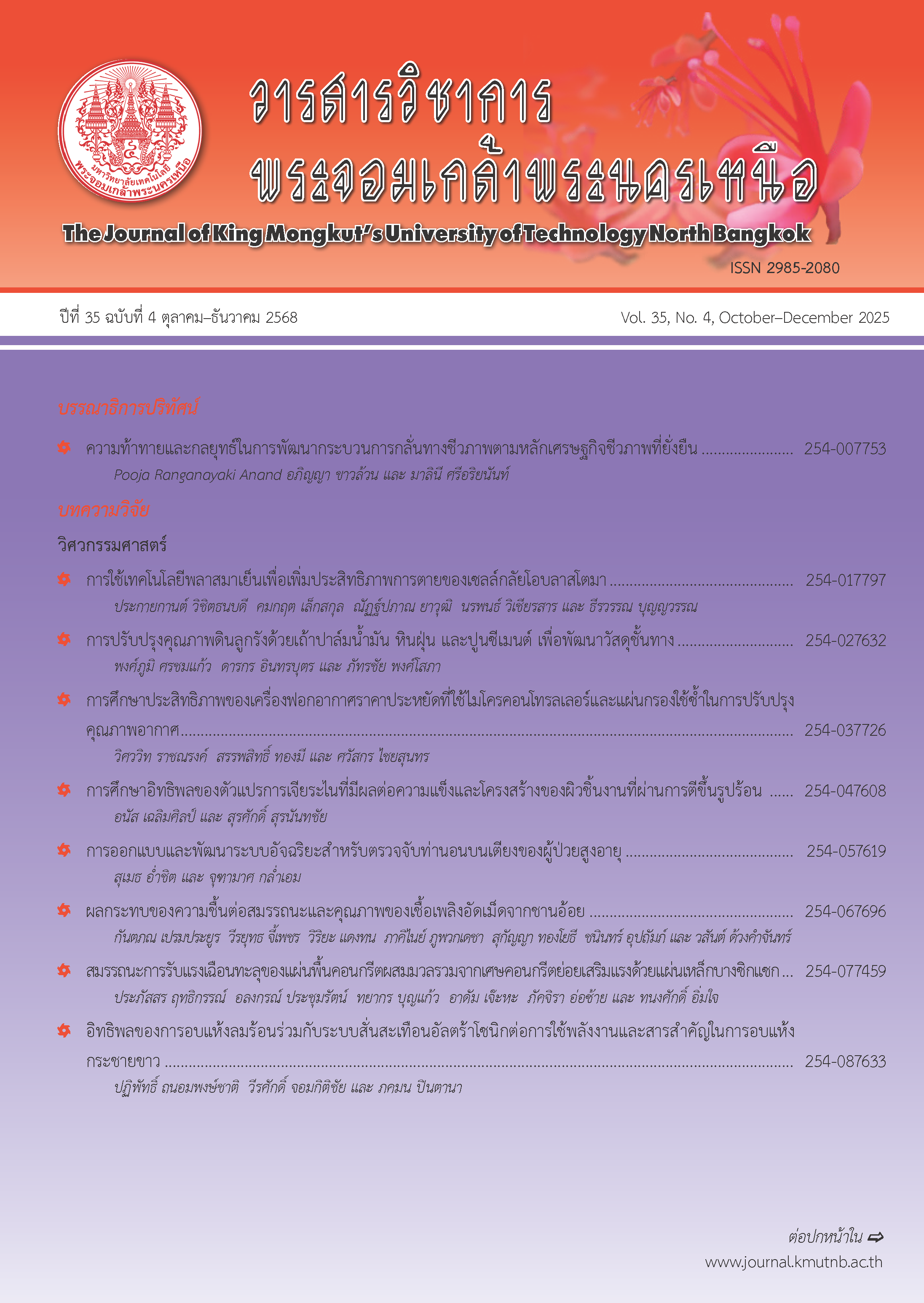การพัฒนารูปแบบศักยภาพนายด่านศุลกากรเพื่อการบริหารงานในยุคดิจิทัล
Main Article Content
บทคัดย่อ
ในยุคที่สังคมโลกเกิดการเปลี่ยนแปลงอย่างรวดเร็วและฉับพลัน หรือที่เรียกว่า โลกยุควูก้า (VUCA World) องค์กรต่าง ๆ ต้องเผชิญกับความท้าทายในการปรับตัวเข้าสู่ยุคดิจิทัล เทคโนโลยี และนวัตกรรมที่ก้าวหน้าทันสมัย ส่งผลให้นายด่านศุลกากรต้องปรับตัวให้ทันต่อการเปลี่ยนแปลง ดังนั้นจึงมีความจำเป็นในการศึกษาวิจัยเพื่อพัฒนารูปแบบศักยภาพนายด่านศุลกากรในยุคดิจิทัล โดยใช้เทคนิคเดลฟายดำเนินการสัมภาษณ์ผู้เชี่ยวชาญงานด่านฯ 21 ท่าน ผลการวิจัยพบว่า ส่วนใหญ่ทั้งด้านศักยภาพนายด่านฯ และด้านกระบวนการบริหารจัดการของนายด่านฯ มีค่าระดับความสำคัญ (Mdn) อยู่ที่ 4.00–5.00 คือ ความสำคัญมากถึงมากที่สุด และระดับความสอดคล้อง (IQR) อยู่ที่ 0.0–1.0 คือ มีความสอดคล้องสูงถึงสูงมาก และสามารถนำผลที่ได้มาจัดกลุ่มองค์ประกอบเพื่อจัดทำรูปแบบศักยภาพนายด่านฯ พบว่า ประกอบด้วย 3 มิติ 4 องค์ประกอบหลัก 20 องค์ประกอบรอง ซึ่งแต่ละองค์ประกอบหลัก มี 5 องค์ประกอบรอง ดังนี้ 1) ความรู้ของนายด่านฯ ได้แก่ เทคโนโลยีดิจิทัลและนวัตกรรม งานศุลกากรและกฎหมาย การบริหารจัดการองค์กร นโยบายและยุทธศาสตร์ และการค้าและความสัมพันธ์ระหว่างประเทศ 2) ทักษะของนายด่านฯ ได้แก่ การบริหารจัดการ การคิดวิเคราะห์และการตัดสินใจ การสื่อสารและประสานงานผู้นำและการสอนงาน และเทคโนโลยีดิจิทัล 3) คุณลักษณะที่พึงประสงค์ ได้แก่ ภาวะผู้นํา จริยธรรมและความประพฤติการพัฒนาตนเอง ความคิดสร้างสรรค์และนวัตกรรม และมนุษยสัมพันธ์การทำงานร่วมกับผู้อื่น และ 4) กระบวนการบริหารจัดการ ได้แก่ การจัดองค์กรในยุคดิจิทัล การบริหารทรัพยากร งบประมาณและเทคโนโลยี การบังคับบัญชา การจัดการวิกฤตและความเสี่ยง และการควบคุมติดตามประเมินผล โดยคู่มือแนวทางการพัฒนา ประกอบด้วย 3 หมวดการเรียนรู้ ได้แก่ TRUST TEAM และ TECH+ รวมทั้งสิ้น 11 แนวทางที่ให้ความสำคัญกับการพัฒนาด้านเทคโนโลยีและนวัตกรรมสำหรับการบริหารองค์กรในยุคดิจิทัล
Article Details

อนุญาตภายใต้เงื่อนไข Creative Commons Attribution-NonCommercial-NoDerivatives 4.0 International License.
บทความที่ลงตีพิมพ์เป็นข้อคิดเห็นของผู้เขียนเท่านั้น
ผู้เขียนจะต้องเป็นผู้รับผิดชอบต่อผลทางกฎหมายใดๆ ที่อาจเกิดขึ้นจากบทความนั้น
เอกสารอ้างอิง
Office of the National Economic and Social Development Council. National Strategy 2018– 2037, Bangkok, Thailand: Office of the National Economic and Social Development Council, 2018 (in Thai).
Digital Government Development Agency, Thailand Digital Government Development Plan 2023–2027, Bangkok, Thailand: Digital Government Development Agency, 2023 (in Thai).
Customs Department, Customs Procedure Manual Chapter 9, Bangkok, Thailand: Customs Department, 2017 (in Thai).
Royal Thai Government Gazette, Ministerial Regulation on the Organization of the Customs Department, Ministry of Finance B.E. 2562. Vol. 136, Sec. 57 A. Bangkok, Thailand: The Secretariat of the Cabinet, 2019 (in Thai).
Information and Communication Technology Center, Customs Department, 5-Year Digital Action Plan (2023–2027), Bangkok, Thailand: Customs Department, 2021 (in Thai).
Department of Primary Industries and Mines, Logistics Standardization, Bangkok, Thailand: 2017 (in Thai).
Office of Customs Affairs, Royal Thai Embassy to Belgium, “Brazilian customs' AI and Its learning capabilities in import-export declaration screening,” Journal of Customs Policy Monitoring Unit, vol. 5, no. 12, Dec. 2020 (in Thai).
T. C. (2024, Sep. 5). From VUCA world to BANI world: A world of uncertainty. Bangkok Business News. [Online] Thailand. Available: https://www.bangkokbiznews.com
C. Jensen, Delphi in Depth: Power Techniques from the Experts Berkeley. Berkeley, CA, USA: McGraw-Hill, 1996.
D. C. McClelland, Testing for competence rather than intelligence. (1973). American Psychologist. [Online]. Available: www. ei.Haygroup.com
H. Fayol, “Administration industrielle et generale,” Bulletin de la Societe del' Industrie Minerale, fifth series. vol. 10, no. 3, pp. 5–162, 1916.
W. Katesing, Research Manual: Action Research. 1st ed. Bangkok, Thailand: Digital Textbook and Printing Production Center, King Mongkut's University of Technology North Bangkok, 2022 (in Thai).
P. Chaiyapong, “Trends in provincial secondary education office administration in the next decade,” M.Ed. thesis, Prince of Songkla University, 1993 (in Thai).
B. Srisa-ard, Statistical Methods for Research, vol. 1, 2nd ed. Bangkok, Thailand: Suviriyasarn, 1998 (in Thai).
S. Buachan, “Development of training program assessment indicators for industrial factory,” M.S. thesis, Department of Vocational Curriculum and Instruction, Graduate School, King Mongkut's Institute of Technology Ladkrabang, 2002 (in Thai).
R. Sontem, “Innovative leadership competencies of head nurses in tertiary care hospitals using delphi technique,” M.S. thesis, Faculty of Nursing, Christian University, 2020 (in Thai).
T. Silpcahru, Research and Statistic DataAnalysis by SPSS and AMOS. Bangkok, Thailand: S. R. Printing Massproducts Company Limited, 2017 (in Thai).
P. Jaisuk, “Developing public sector executive potential in the digital era,” in Public Administration Journal, vol.18, no. 2, pp. 89–106, 2020 (in Thai).
K. Chanjeujun, “Competency development for public organization executives in the digital era,” Journal of Public Administration and Local Innovation, vol. 6, no. 2, pp. 45–62, 2022 (in Thai).
P. Rattanawan, “Leadership development model for executives in the digital era,” Academic Journal of Kanchanaburi Rajabhat University, vol. 8, no. 2, pp. 123–138, 2019 (in Thai).
P. Zakarevicius and E. Zuperkiene,“Improving the development of managers’ personal and professional skills,” Engineering Economics, no. 5, pp. 104–113, 2008.
K. Dorota and T. Dariusz, “Developing managerial competencies in VUCA environment,” Journal of Management Development, vol. 41, no. 3, pp. 147–163, 2022.
D. Blancero, J. Boroski, and L. Dyer, “Key competencies for a transformed human resource organization” Results of a field study: Human Resource Management, vol. 35, no. 3, pp. 383–403, 1996.
H. Mustafa and K. Ayse, “Leadership competencies in the digital age: A study on public sector managers,” International Journal of Business and Management, vol. 12, no. 8, pp. 89–102, 2017.
Y. Wannapo, “Competency components of modern public organization executives,” Journal of Business Administration, vol. 9, no. 1, pp. 78–95, 2020 (in Thai).
S. Viktoriya, K. Olesia, and V. Oksana, “Digital competencies and cross- cultural management skills for modern leaders,” Journal of Management Studies, vol. 7, no. 4, pp. 217–234, 2020.

